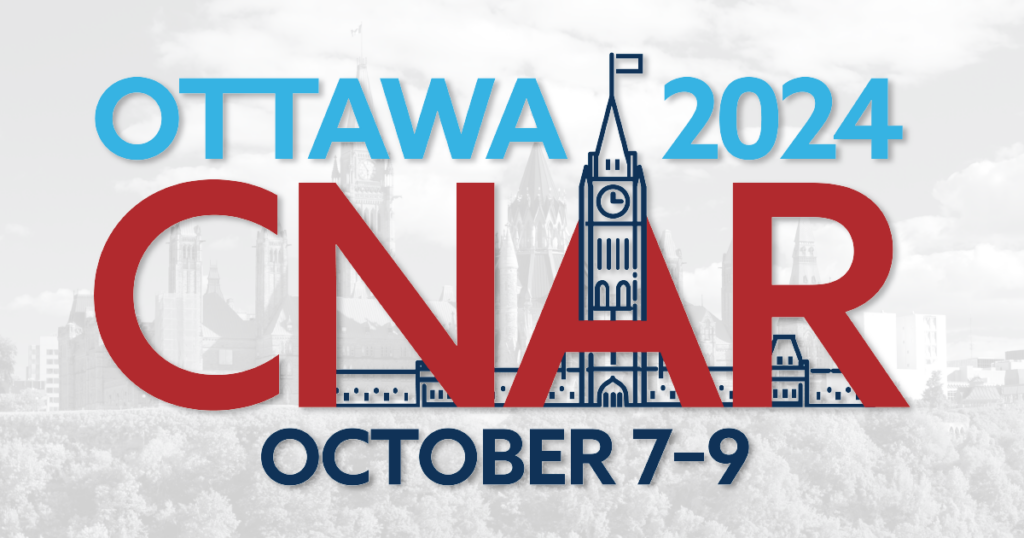
Each year, professionals from across the regulatory community gather at the Canadian Network of Agencies of Regulation (CNAR) conference. This year’s conference—held in Ottawa, Ontario, from October 7 to 9—delivered on its promise to explore timely regulatory issues and provide engaging networking opportunities. As the premier sponsor, Meazure Learning was honored to give a podium speech that echoed the conference theme of Achieving Regulatory Excellence Together.
Major Themes and Trending Topics at CNAR 2024
Throughout the conference, three major themes dominated across nearly 30 sessions.
Theme #1: Equity, Diversity, and Inclusion
Discussions around this theme highlighted the importance of integrating diverse perspectives and creating tests that are widely inclusive yet still respectful of local contexts and cultural nuances. This approach aims to ensure that credentialed professionals reflect and are prepared to serve diverse communities, leading to improved outcomes and a more inclusive regulatory environment.
Theme #2: Discipline and Governance
Another prevalent topic was how regulatory bodies handle discipline and governance in cases of potential professional misconduct. Presenters explored improvements in governance structures, which are crucial for maintaining assessment integrity and trust.
Theme #3: Technology and Continuing Competence
The role of technology in regulatory practices was another key focus area, from new testing methods to platforms that support ongoing professional development. During sessions around this theme, presenters emphasized that standards for maintaining professional competence must advance alongside technology.
“CNAR is always a great opportunity to reconnect with our Canadian clients in both a professional and social manner. It was great seeing everyone again as we continue to move forward.”
—Dr. Chris Beauchamp, Vice President of Psychometrics, Meazure Learning
Session Spotlight: Advancing Equity, Diversity, and Inclusion in Professional Examinations

Our session, “Advancing Equity, Diversity, and Inclusion in Professional Examinations,” showcased strategies for implementing equity, diversity, and inclusion (EDI) into exam development processes. Dr. Aurelie Lecocq of Meazure Learning—along with Dr. Alison Douglas from the Canadian Association of Occupational Therapists and Misty Fortier from the Canadian Nurses Association—presented valuable insights from their own organizations on the topic.
The session generated quite a bit of interest, as many regulatory professionals have voiced a desire for guidance on incorporating EDI practices into their credentialing exams. While enthusiasm for EDI is strong, many organizations are unsure how to acknowledge and address current and historical inequities.
To help guide organizations in these efforts, the session explored three EDI-focused case studies: the first on cultural safety, the second on culture competence, and the third on gender-neutral and inclusive language. Dr. Lecocq, in her presentation of the third case study, explained why using this language in psychometric assessments matters:
- Reducing bias: By removing gendered or exclusive language, assessments can better capture a test-taker’s true knowledge and skills without unintended bias.
- Reflecting diversity: Inclusive language represents diverse identities, fostering a more representative testing experience.
- Promoting fairness and compliance: Beyond ethical standards, inclusive language aligns with legal standards and reinforces assessment validity—supporting fair, equitable outcomes for all test-takers.
The biggest takeaway from this session? Integrating EDI principles into exam development helps regulatory bodies advance fairness and take meaningful steps toward truth and reconciliation. Like many communities, the Canadian public is diverse and deserves assessments that honor its cultural nuances.
Conclusion
This year’s CNAR conference reminded us of the vital role that regulatory bodies play in adapting to changing societal needs. As an industry leader, we look forward to continued community collaboration to uphold the highest standards in credentialing, assessment, and beyond.
For a deeper dive into key credentialing challenges, check out our article “5 Most-Pressing Questions Facing Credentialing Today.”